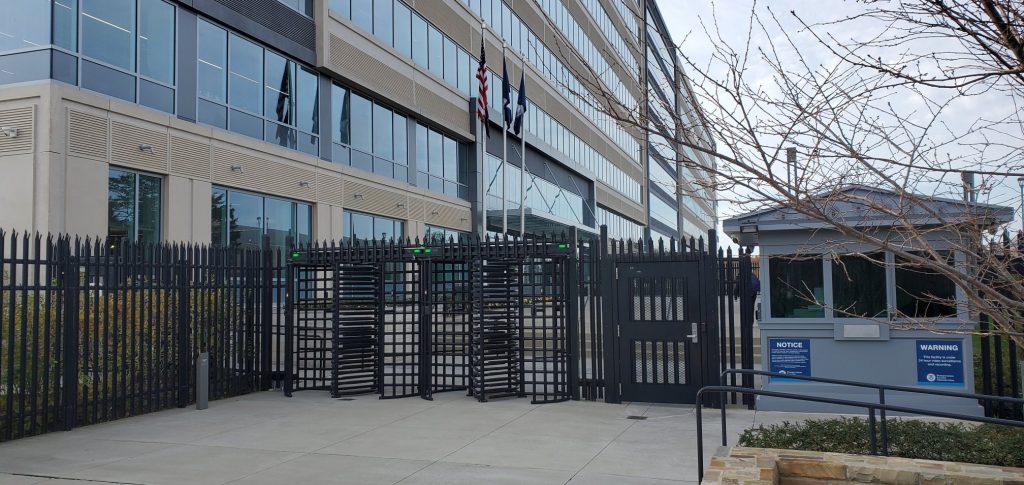Do you need ID to read the REAL-ID rules?
 [“The welcoming, friendly and visually pleasing appearance” of the TSA’s headquarters at 6595 Springfield Center Drive, Springfield, VA.]
[“The welcoming, friendly and visually pleasing appearance” of the TSA’s headquarters at 6595 Springfield Center Drive, Springfield, VA.]
We spent most of a day last week outside the headquarters of the Transportation Security Administration (TSA), trying and failing to find out what the rules are for the TSA’s new digital-ID scheme. What we did learn is that, by TSA policy and practice, you can’t read the REAL-ID rules, get to the TSA’s front door, or talk to any TSA staff unless you already have ID, bring it with you, and show it to the private guards outside the TSA’s gates.
The problems we have faced just trying to get access to the text of the TSA’s rules raise issuess about (recursive) incorporation by reference of third-party, nongovernmental text in regulations, secret law, and access to Federal services and rights by those without ID, as well as the underlying issues of REAL-ID, mobile driver’s licenses, and digital IDs.
In late October, as we’ve previously reported, the TSA issued a final rule establishing “standards” for smartphone-based digital IDs that would be deemed by the TSA to comply with the REAL-ID Act of 2005. These mobile driver’s licenses (mDLs) will be issued by state driver’s license agencies, but the standards incorporated into the TSA rule require that they be deployed through smartphone platforms (i.e. Google and/or Apple) and operate through government apps that collect photos of users and log usage of these credentials.
The standards themselves — the meat of the TSA’s rule — weren’t published in the Federal Register or made public either when the rule was proposed or when it was finalized. Instead, thousands of pages of documents from private third parties were incorporated by reference into the TSA’s rules, giving them the force of law, on the basis of false and fraudulent claims — the falsehood of which was easy for anyone who checked to verify — that they were “reasonably accessible” to affected individuals.
Secret laws are per se a violation of due process, and should be per se null and void. How can it be that “ignorance of the law is no excuse” if the government has kept you ignorant of the law, even when you try to find out what the law says?
You shouldn’t need ID to read the law, just as you shouldn’t need ID to travel by common carrier. But the TSA doesn’t seem to have read the Constitution.